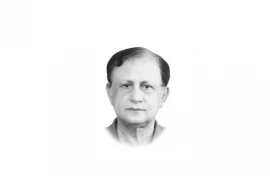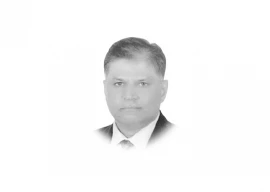The renaming project at Lahore’s Shadman Chowk is under a long historical shadow. It will be difficult to ignore claims to nation, faith and the colonial past. Indeed, for a 4,000-year-old city, it would be interesting to know what the area was called before it was Shadman Colony or a jail was built there, as part of the colonising project. The process of creating landmarks in the subcontinent, or any such colonised time-space is always fraught with conflicting claims of history and experience. The renaming projects of India are witness to this, further complicated by regional and linguistic identities. The idea of history itself is somewhat alien to the Indian consciousness. The idea of empirical history, a narrative of facts and events, is difficult for a mind that refuses to separate myth from memory. We would, therefore, claim the birthplace of Rama with more faith and passion than the birthplace of Pandit Jawaharlal Nehru or Mahatma Gandhi. A tour of the Purana Qila in Delhi will be accompanied by one narrative if the tour guide is Muslim and a wildly differing one if he were Hindu.
James Mill’s History of British India, described by Thomas Macaulay (who introduced English education in the subcontinent) as the “greatest thing after Gibbon (The History of the Decline and Fall of the Roman Empire)”, was written without the direct experience of India. Mill wrote: “This writer has never been in India; and, if he has any, has a very slight, and elementary acquaintance, with any of the languages of the East.” This omission, he believed, made his book better. Mill went on: “I have no doubt of being able to make out, to the satisfaction of all reflecting minds, that the man who should bring to the composition of a history of India, the qualifications alone which can be acquired in Europe, would come, in an almost infinite degree, better fitted for the task, than the man who should bring to it the qualifications alone which can be acquired in India; and that the business of acquiring the one set of qualifications is almost wholly incompatible with that of acquiring the other.”
And so it was that his admirer, Macaulay, without any knowledge of Sanskrit or Arabic, asserted in 1839 that a single shelf of a good European library “is worth the whole native literature of India and Arabia”. He demanded that English should be the medium of instruction in Indian schools, to create subjects that would be “Indian in blood and colour, but English in taste, in opinion, in morals, in intellect.”
Macaulay got the East India Company to hire Max Mueller for four shillings a page to translate Sanskrit scriptures. It is doubtful if Mueller, too, ever visited India. There is an account of his meeting Dwarkanath Tagore, Rabindranath’s grandfather in Paris, where he persuaded the Indian to sing. After Tagore finished, Mueller remarked it was devoid of melody, rhythm and harmony. This was the man who knew India, in and out — empirically, not through experience. If Macaulay had his way, he would, perhaps, have replaced Indian music, too, with European music.
The civilising project, which involves rewriting history and renaming landmarks, often erases much more than it builds. But, in the end, we were a colonised people. In the end, Friel’s character Hugh promises to teach his pupil English. “We must learn where we live. We must learn to make them our own. We must make them our new home.”
Published in The Express Tribune, November 2nd, 2012.
COMMENTS (3)
Comments are moderated and generally will be posted if they are on-topic and not abusive.
For more information, please see our Comments FAQ












name the chowk after Aafia...
What's the point of this article again?!
This article is completely frivolous -- for there are moves afoot now that under pressure from Islamic groups such as those of the Pakistani "hero" (Hafiz Saeed) that this chowk is to be renamed after some heroic Islamic/Kashmiri "hero" (or ZERO?) like Osama Bin Laden or Maqbool Butt!